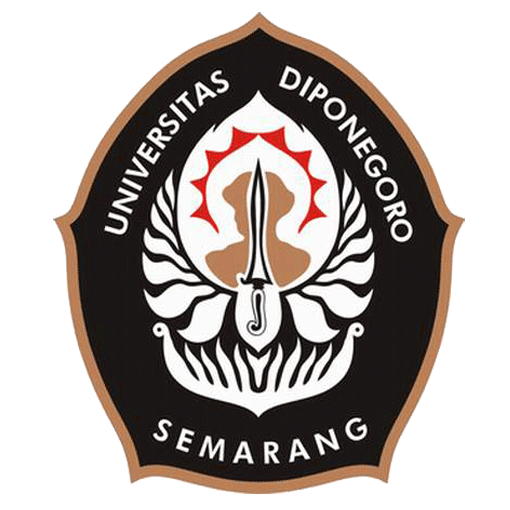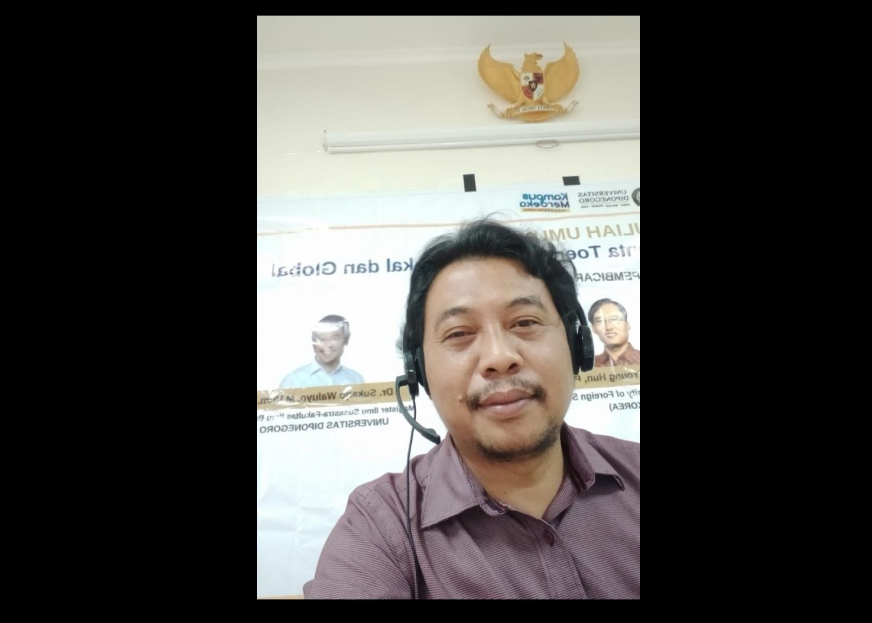In today’s era, cultural issues are getting more attention from people, cultural issues can be locality issues, global issues, conflict resolution issues, environmental issues, gender issues and cultural attitude issues that provide space for the emergence of local cultures. The Indonesian Literature Study Program of Faculty of Humanities, Diponegoro University (UNDIP) has been internationally accredited by FIBAA which indicates that Indonesian Literature today is different from 10 or 20 years ago. This was conveyed by Dr. Sukarjo Waluyo, S.S., M. Hum. who serves as the Head of Indonesian Literature Undergraduate Study Program of FIB Undip.
“There is Indonesian Literature Studies in overseas universities such as in Hankuk University, Fujian Normal University, The University of Melbourne, Monash University, Sidney University and The University of Sydney. Indonesian Literature Studies become one of favorite study program in those universities. The University of Sydney has Asian studies study programs, more specifically Indonesian Literature studies which scope including literature, language or local languages in Indonesia and Indonesian culture which turns out to be an interesting discussion,” he said.
“With international accreditation, we hope that Indonesian Literature students to see and take this opportunity. For example, we have established a cooperative relationship with the University of Brunei Darussalam, if students want further studies we must step out and think about the future. This opportunity must be used by students for further studies, not only in Indonesia but also in Brunei Darussalam, Australia, Korea, China or other universities that are already connected to us,” he continued.
Dr. Sukarjo said that Undip Indonesian Literature was unique since it discussed the issue of Coastal Java, in which there were oral traditions, ketoprak (human puppet show) and so on. Some time ago, the Indonesian Literature Study Program held a discussion about Coastal Java, the forum was attended by UI, Unpad and UGM, and it turned out that the topic of Coastal Java around Demak, Muria, Jepara, Pati, Rembang, Samin, Kudus and Blora will become a discussion topic in the future. This is a very interesting issue and many people will study at Undip because it has experts on oral traditions, linguists, especially Coastal Javanese, folklore experts and performing arts experts.
Meanwhile, for the international curriculum, Indonesian Literature Study Program has BIPA or Indonesian for Foreign Speakers which is included in regular courses. The alumni are prepared to become Indonesian language teachers for foreigners, with the hope that they will be able to teach foreign students or teach in foreign countries. Through the government programs such as the Developing Country Partnership (KNB) and the Darmasiswa scholarship program, Indonesian Literature Study Program accepts foreign students who are required to join Indonesian language classes. This is an important role for Indonesian Literature Study Program to participate in supporting foreign students studying at Undip, including Masters in Literature and Linguistics. The Indonesian Literature Study Program is the opening study program for foreign students who will continue their studies at Undip.
“Indonesian Literature studies the history of literary works, the creative process and creation of literary works, analysis of literary works, the development of literary works, and even the dynamics of literary works which have so far developed tremendously related to IT advancements. We have a concentration on contemporary literary works, now students can analyze literary works on social media as well as conduct research on creative content, for example short films in YouTube. One of the concentrations in film namely cinematography is often used as a development of literature. Indonesian Literature analyzes it in terms of plot, structure, and characters,” said Dr. Sukarjo.
“Some high schools in Indonesia have language and cultural programs, we will try to collaborate with those schools so that the students will register at Undip Indonesian Literature because they already have the basis of language and literature knowledge. It will be beneficial for the students if they continue their studies by taking Indonesian Literature majors. The Indonesian Literature Study Program has a great opportunity because it is internationally accredited, when talking about arts and culture in Central Java, they will definitely ask to Faculty of Humanities Undip. I hope that in the future, the Department of Indonesian Literature will become an important study program and faculty as favorite of the people. The department must be open to new phenomena, both works, cultural studies, documentaries, and contemporary cultural analysis. Most of the Indonesian Literature alumni become lecturers or teachers and journalists, but by looking at the current needs, the job opportunities surely will be wider,” he explained.
“In the future, cultural issues will become important issues, both issues of reconciliation, mediation, the issue of how to create a media that provides positive ideas, including what is on the Coastal Java, we will introduce it to all of us. Lecturers and students are supported to be productive and creative in working, conducting research and producing literary works related with cultural issues. The world is being rocked by uncertainty, one of which is the Covid-19 pandemic, so culture is one of the answers to humanitarian problems. For students, now we have to think globally, students can continue their studies at home and abroad. Opportunities are open to all students and there are no limits to achieve their dreams. For prospective students who want to study at Undip, we are ready to accommodate the talents or dreams of anyone who wants to become a cultural expert, literary expert or expert on old manuscripts, more specifically to become an author, filmmaker, script writer, or journalist,” he concluded. (Lin – Public Relations)

